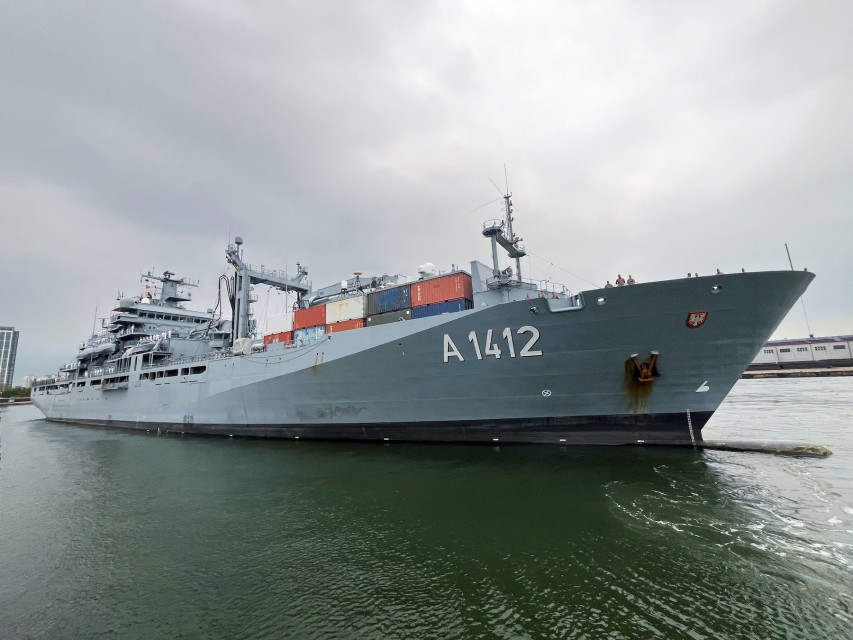
By Josh Smith
INCHEON, South Korea (Reuters) – A rare cruise by two German warships in the Indo-Pacific region will demonstrate a commitment to open navigation, the admiral in charge of the naval task force said on Friday, but he declined to confirm if they would transit the contesed Taiwan Strait.
“Safe and secure sea lanes, especially from Southeast Asia as well as to Europe and America, are a prerequisite for a prosperous economy of all our countries,” Rear Admiral Axel Schulz said in a speech to a reception held on the flight deck of the frigate FGS Baden-Württemberg during a port visit in the South Korean city of Incheon.
Asked later whether the task force would cross the Taiwan Strait on its way to its next stop in Manila, Shulz told reporters that to telegraph the ships’ plans would violate operational security.
While the U.S. and other countries have sent warships through the narrow strait in recent weeks, it would be the German navy’s first such passage since 2002.
China claims sovereignty over democratically governed Taiwan, and says it has jurisdiction over the nearly 180-km (110 miles) wide waterway that divides the two sides and is part of the South China Sea.
Taiwan objects to China’s sovereignty claims and says only the island’s people can decide their future.
“The general aim of this deployment is to reassert that Germany is committed to rules based international order, but at the same time to practice and exchange ideas with partners and allies in the spirit of trusting cooperation and to prevent possible conflicts,” Schulz said in his speech.
The frigate and the accompanying replenishment vessel are participating in several military exercises and took part in operationally monitoring sanctions on North Korea.
Last month Germany joined the U.S.-led United Nations Command (UNC) in South Korea that helps police the heavily fortified border with North Korea and has committed to defend the South in the event of a war.
North Korea and Russia signed a mutual defence pledge this year and the United States and its allies have accused Pyongyang of providing weapons used by Russia to strike targets in Ukraine.
“What happens in Russia, Ukraine directly affects South Korea,” German Ambassador to South Korea Georg Schmidt said. “What happens in North Korea directly affects Germany.”
(Reporting by Josh Smith; Editing by Angus MacSwan)








